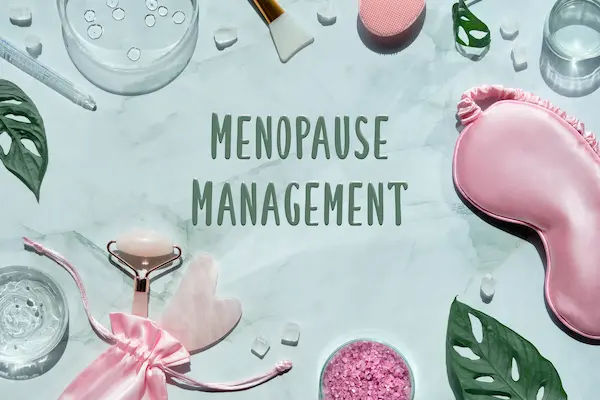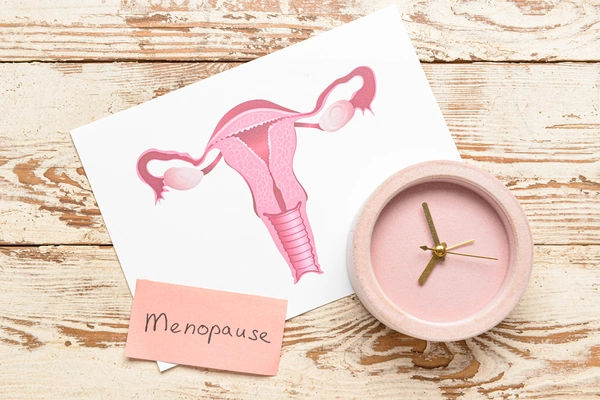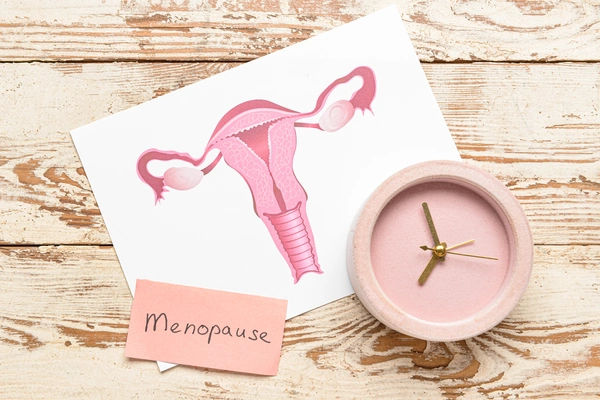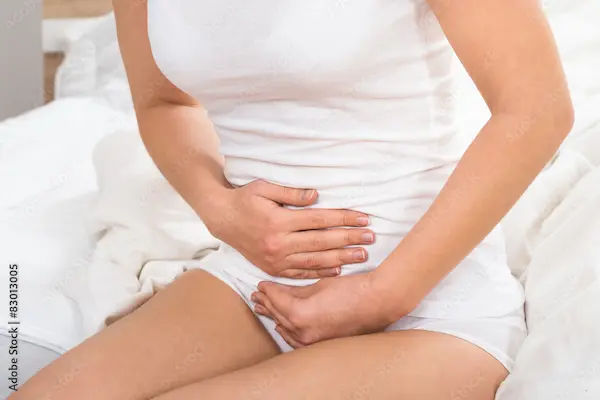Menopause Myths Busted A No-Nonsense Guide to Your Changing Body
Know about the menopause myths. Six myths busted with an explanation of facts. Learn about the social interactions and more.

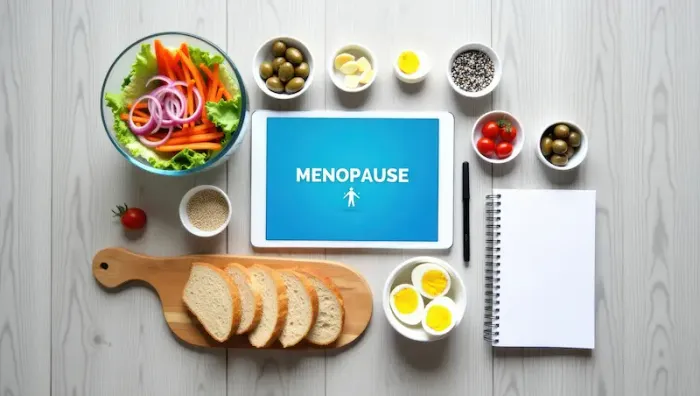
Introduction
Menopause. It’s a word shrouded in whispers, jokes, and often, a great deal of misinformation. For many, it conjures images of hot flashes and mood swings, but the reality is far more complex and personal. The journey through perimenopause and menopause is a significant life transition, yet it's often navigated with outdated myths as the only guide. You're not alone if you feel confused. This article is here to change that. We're going to dismantle the most common menopause myths and replace them with evidence-based facts, empowering you to understand and embrace this new chapter with confidence and clarity. We’ll explore the truth about timing, symptoms, weight, sexuality, and treatment options, giving you the knowledge you need to take control of your health.
Myth 1: Menopause Strikes at 50 and is Abrupt
One of the most pervasive menopause myths is that it's a single event that happens on your 50th birthday. You wake up one day and it's "over." This couldn't be further from the truth.
The Reality of Perimenopause: The Long Lead-Up
Menopause is officially defined as the point in time when you haven't had a menstrual period for 12 consecutive months. The years leading up to this point are called perimenopause. This transitional phase can last anywhere from 4 to 10 years for some women. During perimenopause, your ovaries gradually produce less estrogen, leading to a wide array of symptoms that can be subtle at first. You might experience irregular periods, changes in flow, or the early onset of hot flashes and sleep disturbances long before your periods stop completely. Understanding that this is a gradual process, not a switch being flipped, is the first step in managing it effectively.
Consult a Top Gynaecologist for Personalised Advice
What is the Actual Average Age for Menopause?
While 51 is the average age for menopause in the United States, the normal range is wide, typically between 45 and 55. However, some women experience it earlier. "Premature menopause" (before age 40) or "early menopause" (before age 45) can occur naturally or due to medical interventions like surgery or chemotherapy. Recognising the signs of perimenopause at 40 or even earlier is crucial for getting the right support and care.
Myth 2: Hot Flashes are the Only Symptom You Need to Worry About
If popular culture is to be believed, menopause is synonymous with hot flashes. While these sudden waves of heat are a hallmark symptom for many, focusing solely on them ignores a vast spectrum of changes affecting nearly every system in your body.
Beyond the Heat: Cognitive and Emotional Changes
Many women report significant menopause and brain fog—difficulty concentrating, memory lapses, and a feeling of mental "cloudiness." This is not just in your head; fluctuating hormones can directly impact cognitive function. Emotionally, the rollercoaster of estrogen and progesterone can contribute to increased anxiety, irritability, and lower stress tolerance. It's important to distinguish these hormonally driven feelings from clinical depression, though the risk for depression can increase during this time. Acknowledging these cognitive and emotional shifts validates a very real experience for countless women.
The Physical Symptoms You Might Not Expect
Beyond the well-known symptoms, your body can send other signals. These can include:
Sleep disruptions: Often caused by night sweats, but also by hormonal changes alone.
1. Vaginal and urinary changes: Decreased estrogen can lead to vaginal dryness, itching, and pain during sex (a condition called genitourinary syndrome of menopause, or GSM), as well as an increased risk of urinary tract infections.
2. Joint pain and stiffness: Aches and pains can become more common.
3. Changes in skin and hair: Skin may become drier, and hair may thin.
4. If you experience a cluster of these symptoms, it’s wise to consult a doctor. If symptoms like persistent joint pain or mood changes are affecting your daily life, consult a doctor online with Apollo24|7 for further evaluation.
Myth 3: Menopause Dooms You to Weight Gain and a Loss of Fitness
The belief that menopause automatically leads to significant weight gain, particularly around the abdomen, is only partly true. While hormonal changes can shift fat storage to the abdominal area and make losing weight more challenging, it is not an inevitable fate.
The Real Reasons Your Body Composition Changes
The decline in estrogen plays a role, but ageing itself is a bigger factor. As we age, we naturally lose muscle mass (a process called sarcopenia). Since muscle burns more calories at rest than fat, having less muscle slows down your metabolism. Combine this with a lifestyle that may have become more sedentary over the years, and weight gain can occur. The key is not to blame menopause entirely but to see it as a cue to adapt your strategies for managing menopause weight gain.
Reclaiming Control: Nutrition and Exercise Strategies
The most effective approach is two-pronged. For nutrition, focus on protein intake to support muscle mass, fiber for satiety and gut health, and calcium and vitamin D for bone strength. For exercise, strength training or resistance exercises become non-negotiable to build and maintain muscle. This, combined with cardiovascular activity, is the best exercise for menopause symptoms management, helping to boost metabolism, improve mood, and protect bone density.
Myth 4: Your Sex Life is Over After Menopause
This myth is not only false but can be harmful. While sexual function can change due to physical factors like vaginal dryness, it doesn't have to mean an end to a fulfilling sex life. For many women, freedom from pregnancy concerns and, sometimes, a more confident sense of self can lead to a renaissance in intimacy.
Understanding Vaginal and Libido Changes
Decreased estrogen can cause the vaginal tissues to become thinner, drier, and less elastic, leading to discomfort during intercourse. This is a common and treatable medical condition. Libido can also fluctuate due to hormonal shifts, fatigue, or other life stressors. Open communication with your partner and a healthcare provider is essential. There are numerous treatment options for vaginal dryness, from over-the-counter lubricants and moisturisers to prescription topical estrogen.
Rediscovering Intimacy and Pleasure
Intimacy is more than just intercourse. Focusing on emotional connection, sensual touch, and communication can open new doors to pleasure. If physical issues are a barrier, a healthcare provider can help. If your condition does not improve after trying these methods, book a physical visit to a doctor with Apollo24|7 to discuss a range of solutions tailored to your needs.
Myth 5: Hormone Replacement Therapy (HRT) is Universally Dangerous
The landmark Women's Health Initiative study in 2002 linked HRT to increased risks of breast cancer and heart disease, causing widespread fear. However, subsequent re-analysis of the data revealed a more nuanced picture. The study primarily involved older women (average age 63), and the risks were found to be less significant for younger women (aged 50-59) starting HRT near the onset of menopause.
Re-evaluating HRT: Benefits and Modern Approaches
Today, HRT is considered a safe and highly effective option for many women suffering from moderate to severe menopausal symptoms. The key is personalised treatment. "Bio-identical" hormones, lower doses, and different delivery methods (patches, gels) have improved the risk profile. For healthy women under 60 within 10 years of menopause, the benefits of relieving debilitating symptoms and protecting bone health often outweigh the risks. The critical question is not "is HRT safe?" but "is HRT safe for me?"
Who is a Good Candidate for HRT?
HRT is most beneficial for women with severe hot flashes, night sweats, vaginal dryness, or those at high risk for osteoporosis. It's generally not recommended for women with a history of certain cancers, blood clots, or liver disease. The decision must be made individually after a thorough discussion with your doctor about your personal and family health history.
Myth 6: Menopause is a "Women's Issue" and Doesn't Affect Others
This final myth allows the topic to remain in the shadows, increasing stigma and isolation. The truth is, menopause has a ripple effect that touches partners, families, and workplaces.
The Impact on Relationships and Work
Severe symptoms can strain relationships and impact performance at work. Brain fog can affect concentration, and fatigue can reduce energy for family activities. When partners and employers are uninformed, they may misinterpret these changes as a lack of effort or interest, leading to conflict and misunderstanding.
Why Societal Understanding is Crucial
Normalising conversations about menopause is vital. It encourages empathy, allows women to seek support without shame, and can drive the creation of more supportive workplace policies (like flexible working hours or temperature control). Educating everyone, ot just women, creates a more supportive environment for this universal transition.
Conclusion
Navigating menopause armed with facts, not fiction, transforms it from a dreaded phase into a manageable life transition. By busting these common menopause myths, we hope we've empowered you to advocate for your health and well-being. Remember, your experience is unique. Listen to your body, track your symptoms, and don't hesitate to seek professional guidance. This chapter of your life is not an ending but an evolution a time to prioritise your health, deepen your self-awareness, and step into a new era of confidence. You have the power to take control, and the first step is seeking knowledge. If you have concerns about your symptoms or treatment options, a healthcare provider can offer personalised advice to help you thrive during menopause and beyond.
Consult a Top Gynaecologist for Personalised Advice
Consult a Top Gynaecologist for Personalised Advice

Dr. P. N. Nobis
Obstetrician and Gynaecologist
51 Years • DGO/MD
Guwahati
Apollo Hospitals G S Road, Guwahati

Dr. Sushma Prasad Sinha
Obstetrician and Gynaecologist
35 Years • MBBS, MD, MRCOG., FRCOG., FICOG, FIMSA
Delhi
Apollo Hospitals Indraprastha, Delhi
(50+ Patients)

Dr M Dharini
Obstetrician and Gynaecologist
9 Years • MBBS,DGO,MS OG,DNB OG
Chennai
Apollo Hospitals Tondiarpet, Chennai

Dr Padmavathi Narahari
Obstetrician and Gynaecologist
20 Years • MBBS,MS OG, Fellowship in Advanced Laproscopic Gynaecology
Chennai
Apollo First Med Hospitals P H Road, Chennai

Dr. Srikala Dodda Reddy
Obstetrician and Gynaecologist
10 Years • MBBS,DNB(Obstetrics and Gynaecology),FRM(Post doctoral fellowship in reproductive medicine)
Chennai
Apollo Women Hospitals Thousand Lights, Chennai
(50+ Patients)
Consult a Top Gynaecologist for Personalised Advice

Dr. P. N. Nobis
Obstetrician and Gynaecologist
51 Years • DGO/MD
Guwahati
Apollo Hospitals G S Road, Guwahati

Dr. Sushma Prasad Sinha
Obstetrician and Gynaecologist
35 Years • MBBS, MD, MRCOG., FRCOG., FICOG, FIMSA
Delhi
Apollo Hospitals Indraprastha, Delhi
(50+ Patients)

Dr M Dharini
Obstetrician and Gynaecologist
9 Years • MBBS,DGO,MS OG,DNB OG
Chennai
Apollo Hospitals Tondiarpet, Chennai

Dr Padmavathi Narahari
Obstetrician and Gynaecologist
20 Years • MBBS,MS OG, Fellowship in Advanced Laproscopic Gynaecology
Chennai
Apollo First Med Hospitals P H Road, Chennai

Dr. Srikala Dodda Reddy
Obstetrician and Gynaecologist
10 Years • MBBS,DNB(Obstetrics and Gynaecology),FRM(Post doctoral fellowship in reproductive medicine)
Chennai
Apollo Women Hospitals Thousand Lights, Chennai
(50+ Patients)
More articles from Menopause
Frequently Asked Questions
1. What are the first signs of perimenopause?
The earliest signs are often subtle and can include irregular periods, changes in menstrual flow, the onset of hot flashes or night sweats, sleep disturbances, and new feelings of moodiness or anxiety. These signs of perimenopause can appear in your late 30s or 40s.
2. Can menopause cause anxiety and depression?
Yes, the hormonal fluctuations of perimenopause and menopause can significantly impact your mood. Declining estrogen levels can affect neurotransmitters like serotonin, which regulates mood. This can lead to new or worsened anxiety and depression. It's important to discuss these feelings with a doctor.
3. Are there natural remedies for managing hot flashes?
Some women find relief with lifestyle changes and natural approaches. These can include identifying and avoiding triggers (like spicy food, caffeine, and alcohol), practising deep breathing techniques (like paced respiration), wearing layers of clothing, and using supplements like black cohosh or soy isoflavones after consulting with a doctor.
4. How long do menopausal symptoms typically last?
The duration varies greatly. On average, symptoms like hot flashes and night sweats can last for about 7 years, but may persist for much longer in some women. For about a third of women, they can last for a decade or more.
5. What are the long-term health risks associated with menopause?
The decline in estrogen increases the risk of certain conditions over the long term. The most significant are osteoporosis (due to accelerated bone loss) and an increased risk of heart disease. This makes a healthy lifestyle, including a balanced diet, regular weight-bearing exercise, and not smoking, critically important.

